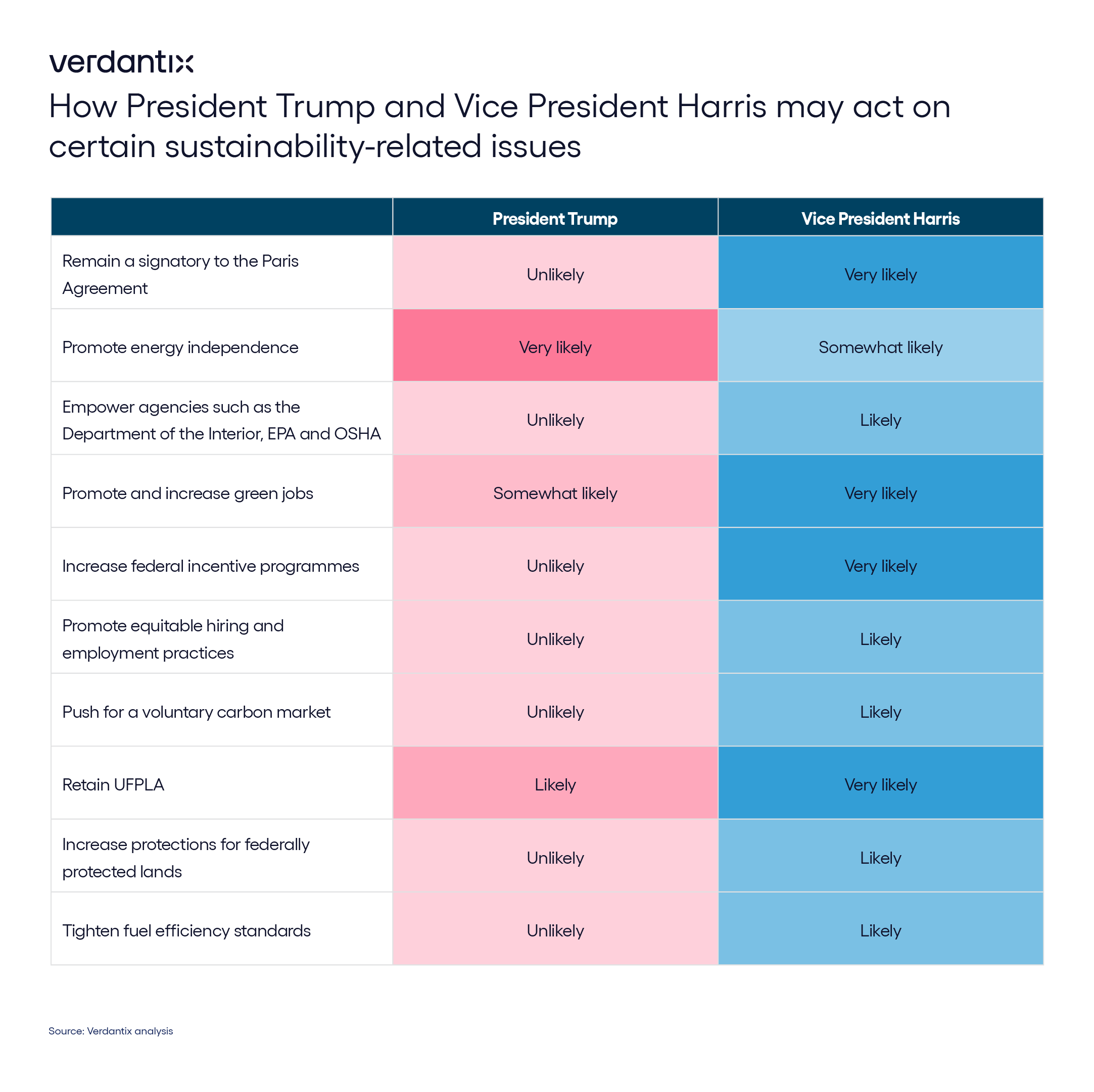The 2024 Elections: A Pivotal Moment For Sustainability Initiatives In The US
We have officially entered the final stretch of the 2024 election cycle, with election day just weeks away. In terms of climate action and other sustainability action, the stakes in these elections are extremely high, with the vote set to determine the direction the US will take. From the White House and state legislatures, to the judicial system, the outcomes of these elections will shape sustainability-related policies for years to come. Specifically:
- All eyes are on the presidential race.
The most significant contest in these elections is the high-profile presidential race between the former president Donald Trump and Vice President Kamala Harris. These candidates have tackled sustainability-related issues very differently in the past – a trend which is likely to continue. Trump, for example, has indicated that if elected, he would once again withdraw the US from the Paris Agreement and cut funding for the Inflation Reduction Act (IRA). Harris has made funding the IRA central to her campaign, noting that doing so would help to increase green jobs, improve infrastructure and help the country transition away from fossil fuels.
- The next president will be able to influence the US judicial system.
The next president may be able to alter the composition of the conservative-leaning Supreme Court, such as by making changes to rules governing the court or by nominating justices. They will also appoint judges to lower courts, which are often the first to hear cases related to the environment, climate change and DEI initiatives.
- It’s not just the presidential race that matters.
Key down-ballot elections, such as those for congressional seats and state governors, will also have a huge impact on sustainability-related issues. These elections will determine control of the US Senate and House of Representatives, which have the authority to pass or stall federal sustainability-related legislation. They will also affect the make-up of state governments, which could result in major shifts in state-level policies, as evidenced by climate legislation originating in California’s state Senate.
There is much uncertainty surrounding the elections – and things are likely to get murkier as election day nears. Both Trump and Harris are visiting swing states affected by Hurricane Helene, discussing the impacts of climate change and federal disaster response efforts. Additionally, the ‘New York Times’ announced that President Joe Biden may sign a bill to weaken federal environmental reviews for semiconductor manufacturing projects, signalling a departure from the Biden-Harris administration’s previous pro-environmental legislation – but potentially attracting undecided voters with the prospect of an increased number of jobs.
With so many unknowns, sustainability leaders should continue to push forward their sustainability initiatives, to ensure they are best prepared for these uncertainties. For more information about the state of play in the upcoming elections – as well as advice on how US-based firms can prepare – see Verdantix Strategic Focus: The Sustainability-Related Implications Of The 2024 Election Go Well Beyond The Presidency.

About The Author

Jessica Pransky
Principal Analyst


-market-for-2025_main-image.jpg?sfvrsn=321a5193_1)


